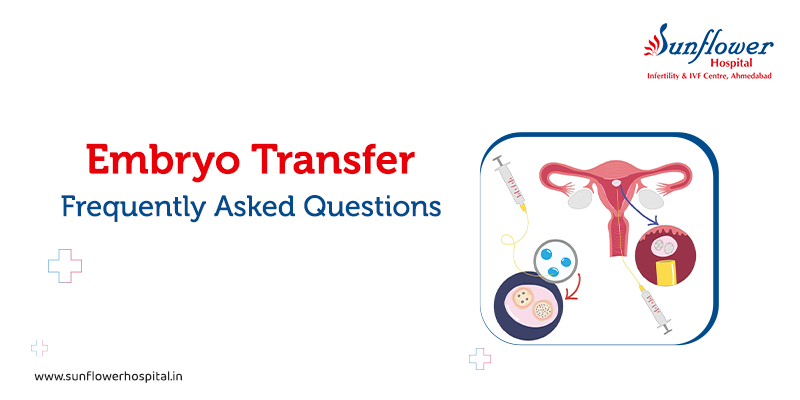Embryo transfer, a crucial step in IVF (In-Vitro Fertilization, is also the last step of the procedure. The procedure involves placing a fertilized egg in the uterus. However, it is common for the patients and their loved ones to have many questions concerning the procedure.
As a leading fertility center offering IVF treatment in India, it is our responsibility to impart knowledge regarding fertility treatments and their steps so patients can make informed decisions. Thus, this blog.
5 Common Questions About Embryo Transfer Process
1. How long does embryo implantation take after the transfer?
There is no specific duration for implantation since it primarily depends on the embryo's maturity. However, it is generally observed that the process is completed within 1-5 days post embryo transfer.
2. When will I figure out that I am pregnant?
The journey from fertility treatment to pregnancy is long, requiring a lot of patience and waiting. Post embryo transfer, you need to wait a minimum of 9-10 days for your pregnancy test. This is because the medications recommended during IVF can influence hormone levels, often indicating inaccurate results.
3. Is discharge or bleeding normal post-embryo transfer?
It is normal for women to experience light spotting or bleeding after the embryo transfer. It can last up to 2 days and often looks like light brown or pink discharge.
In some cases, women experience additional vaginal discharge. However, there is nothing to panic about. It can simply be a result of blood or hormones rushing to the reproductive organs. Please note that it is one way the body naturally protects the uterus from infections and bacteria.
Another reason for vaginal discharge can be vaginal medications. These medicines are prescribed to stimulate implantation, leading to discharges that can look similar to gel or powder.
4. Will I be on bed rest after embryo transfer?
No, the embryo transfer procedure does not require patients to go on complete bed rest. Instead, they will be resting under supervision for about twenty minutes post-procedure before discharge.
Even if you can resume routine activities, it is essential to be mindful and attentive. Avoid engaging in intense physical activity or lifting heavy weights for a few days, ensuring that an ideal uterine environment is created for a successful implantation.
5. Are there any early pregnancy signs after embryo transfer?
Women may or may not experience early signs of pregnancy. However, these symptoms in no way indicate the success or failure of the procedure. Additionally, symptoms similar to pregnancy can be a result of hormonal changes due to medications.
Regardless, early symptoms commonly observed are:
- Cramping
- Breast tenderness
- Implantation bleeding or spotting
- Elevated basal body temperature
- Fatigue
The Ending Note
Every fertility journey is unique. However, embryo transfer plays a crucial role. It is the final step that brings you one step closer to your parenthood dream. While there are several factors affecting the process, the decision to undergo this must be made after careful consideration. Hopefully, this blog helped you find answers to some of the most commonly asked questions about embryo transfer.
Lastly, team Sunflower, with its best IVF specialist in India, will be beside you throughout the fertility journey to ensure everything goes well.


Leave a Comment